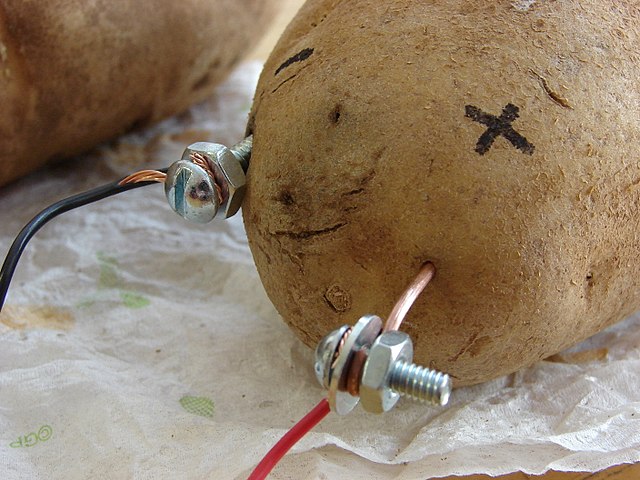
- Publication Process

How to Write a Journal Article from a Thesis
- 3 minute read
- 213.2K views
Table of Contents
You are almost done with your PhD thesis and want to convert it into a journal article. Or, you’re initiating a career as a journal writer and intend to use your thesis as a starting point for an article. Whatever your situation, turning a thesis into a journal article is a logical step and a process that eventually every researcher completes. But…how to start?
The first thing to know about converting a thesis into a journal article is how different they are:
Thesis Characteristics:
- Meets academic requirements
- Reviewed by select committee members
- Contains chapters
- Lengthy, no word limits
- Table of contents
- Lengthy research of literature
- IRB approval described in detail
- Description and copies of tools used
- All findings presented
- Verb tenses may vary
Journal Article Characteristics:
- Meets journalistic standards
- Reviewed by a panel of “blind” reviewers
- Word limits
- Manuscript format
- Succinct research of literature
- IRB described in 1 to 3 sentences
- Essential and succinct tool information
- Selected findings presented
- Verb tenses are fairly consistent
Converting your thesis to a journal article may be complex, but it’s not impossible.
A thesis is a document of academic nature, so it’s more detailed in content. A journal article, however, is shorter, highlighting key points in a more succinct format. Adapting a thesis for conversion into a journal article is a time-consuming and intricate process that can take you away from other important work. In that case, Elsevier’s Language Editing services may help you focus on important matters and provide a high-quality text for submission in no time at all.
If you are going to convert a thesis into a journal article, with or without professional help, here is a list of some of the steps you will likely have to go through:
1. Identify the best journal for your work
- Ensure that your article is within the journal’s aim and scope. How to find the right journal? Find out more .
- Check the journal’s recommended structure and reference style
2. Shorten the length of your thesis
- Treat your thesis as a separate work
- Paraphrase but do not distort meaning
- Select and repurpose parts of your thesis
3. Reformat the introduction as an abstract
- Shorten the introduction to 100-150 words, but maintain key topics to hold the reader’s attention.
- Use the introduction and discussion as basis for the abstract
4. Modify the introduction
- If your thesis has more than one research question or hypothesis, which are not all relevant for your paper, consider combining your research questions or focusing on just one for the article
- Use previously published papers (at least three) from the target journal as examples
5. Tighten the methods section
- Keep the discussion about your research approach short
6. Report main findings in the results
- Expose your main findings in the results section in concise statements
7. Discussion must be clear and concise
- Begin by providing an interpretation of your results: “What is it that we have learned from your research?”
- Situate the findings to the literature
- Discuss how your findings expand known or previous perspectives
- Briefly present ways in which future studies can build upon your work and address limitations in your study
8. Limit the number of references
- To choose the most relevant and recent
- To format them correctly
- Consider using a reference manager system (e.g. Mendeley ) to make your life easier
If you are not a proficient English speaker, the task of converting a thesis into a journal article might make it even more difficult. At Elsevier’s Language Editing services we ensure that your manuscript is written in correct scientific English before submission. Our professional proofers and editors check your manuscript in detail, taking your text as our own and with the guarantee of maximum text quality.
Language editing services by Elsevier Author Services:

- Research Process
How to Choose a Journal to Submit an Article

- Publication Recognition
How to Submit a Paper for Publication in a Journal
You may also like.

Publishing Biomedical Research: What Rules Should You Follow?

Writing an Effective Cover Letter for Manuscript Resubmission

Journal Acceptance Rates: Everything You Need to Know

Research Data Storage and Retention

How to Find and Select Reviewers for Journal Articles

How to Request the Addition of an Extra Author Before Publication

Paper Rejection: Common Reasons
Input your search keywords and press Enter.
How to Convert Your Dissertation into a Journal Article
Adapting your thesis into a shorter article.

Converting your dissertation into a shorter academic article in a peer-reviewed scholarly journal is a daunting task that is rarely addressed in the realm of academia.
Many junior academics face challenges when embarking on this process, among them: writer’s block, fear of rejection, and criticism. Familiarize yourself with this important roadmap that outlines how to effectively condense your dissertation into a publishable journal article. You can increase your chances of publication success, as either a novice or seasoned researcher and author, by following these tips below:
Journal identification
First, do a quick self-assessment. Are you fully informed about the specific criteria required to evaluate a scholarly journal’s credibility ? It is important to keep in mind that your journal should:
- Be peer-reviewed
- Have a high academic rigor, ranking, and reputation
- Be indexed in databases that are credible and recognized in the field
- Be in collaboration with editorial board members who are affiliated with reputable, prestigious academic institutions or universities, and
- Have a minimum of 30% acceptance rate criteria or below
Shortening your thesis
Having a strong story with a unique and authentic voice is pivotal for a successful academic publication. Check whether you will be able to turn your original extensive research, which undoubtedly embodies an engaging story, into a shorter and to-the-point academic narrative.
Manuscript reformat
You should have a clear understanding of the differences between a master’s thesis (or a doctoral dissertation) and a journal article in terms of their format , content, and organization. While a dissertation is process-oriented, a journal article is content-oriented. Also, unless advised otherwise by your journal’s format guidelines, your manuscript’s length should generally vary from 3,000 to 5,000 words and your required academic writing manuals should be the most recent edition of the APA writing style (7 th edition) or an alternative writing manual recommended to authors by your target journal (e.g., MLA, Chicago, Harvard, etc.).
Adapt your story arc
The structure of the story in a journal article will be significantly different from that crafted in an academic thesis or a dissertation. For example, keep the literature review section in your journal manuscript relatively brief. When crafting a journal article, focus on the following:
- Theoretical/conceptual framework, and
- Significance and contribution to the field and to the literature.
Your article’s section structure
Develop a clear understanding of how the structure of your journal article should be established. For example, your manuscript should generally comprise three sections. See the specific elements you should include in each part:
Introduction
- Introduction and the context of your research
- Problem statement
- Research questions (for qualitative studies) or hypotheses (for quantitative research)
- Study’s significance to the field
- Conceptual/theoretical framework
- Review of the literature
Method and Design
- Population and sample size
- Procedures of data collection and analysis (i.e., tools, instruments, and materials to gather, analyze, and synthesize data)
- Validity, reliability, generalizability, transferability, and replicability
- Discussions
- Comparison and contrast with the current body of literature
- Implications
- Challenges and limitations
- Recommendations or directions for future research
- Conclusions
- A-ha moments, lessons learned, messages to take in a to-go box, etc.
Thus, whether a novice or an expert author, always ask yourself if you have a thorough comprehension of how to properly incorporate these essential components of each of the three parts into your academic manuscript.
Identify your target audience
Identify who will be reading your work. Do a detailed inquiry of who will benefit from your work, as the goal is for your research to contribute to your field’s literature. Once your target readers are identified, set out to write each part of your journal article accordingly.
Final words
In this blog entry, we have provided you with practical recommendations when setting out to craft your article for publication in a reputable journal. They will guide you in the right direction before, during, and after the writing process. We hope you will find them practical and helpful to get your own unique piece of scholarly work published sooner than anticipated.
- Our Mission and Values
- Journals and Publishers
- Research Authorities
- Foundations and Museums
- Language Experts
- Translation
- Academic Writing Coaching
- Academic Review
- Book Proposal Assistance
- Journal Finder
- Table and Graph Formatting
- Manuscript Preparation
- Grant Services
- Post-Publication Services
- Grant Proposal Assistance
- Publication Support
- Our Seven Step Recipe For Success
- Pricing & Turnaround
- Success Story- Grant Proposal Assistance
- Success Story- Translation
- Success Story: Editing
- Success Story: Publication Support
- Success Story- Junior Scholar
- 'Publication Success' Interview Series: Previous Recordings
- FAQ: People
- FAQ: Projects
- FAQ: Timeline and Pricing
- Author Resources
- Newsletter Archive
- Upcoming Live Events
- Link to facebook
- Link to linkedin
- Link to twitter
- Link to youtube
- Writing Tips
How to Turn Your Thesis into a Journal Article
4-minute read
- 11th September 2019
If you are writing a PhD thesis , you may be thinking about how to get your work published when you’re done. One option is to convert your thesis – or part of your thesis – into an academic journal article .
And if you want to do this, you’ll need to:
- Pick a journal with a scope that matches your research interests.
- Decide which parts of your thesis you want to use for the article.
- Think about whether to co-author the article with someone else.
- Check the journal publisher’s website for author instructions.
- Have the article proofread by an academic editor.
Let’s look at each of these steps in more detail to see how the process works.
1. Pick a Journal
To maximize your chances of publication, pick a suitable journal. The journal’s scope – i.e., the kind of work it publishes – is the most important factor here.
Specialist journals with a narrower scope may be more open to submissions from early career academics than larger, multidisciplinary journals (simply because there is more competition for Nature than, say, the American Journal of Potato Research ). But the most important thing is that your work fits the research interests and approaches of the publishing journal.
Other things to consider when choosing a journal include:
- Article rejection rate.
- Journal metrics (e.g., the impact factor ).
- Journal reputation (e.g., the turnaround times for acceptance/publication).
For more advice, check out the Think. Check. Submit. campaign.


2. Plan Turning Your Thesis into a Journal Article
A PhD thesis is, typically, a long, detailed account of your research. By comparison, a journal article will usually be more focused.
As such, part of turning your thesis into a journal article involves deciding what you will include. This could be a case of setting out your overall argument in clear, concise terms. Or it could be looking for parts of your PhD research that you could use for standalone articles.
Find this useful?
Subscribe to our newsletter and get writing tips from our editors straight to your inbox.
When planning your article, you will therefore need to:
- Have a clearly defined research question.
- Find the parts of your thesis that are most relevant to your question.
- Summarize the aims, methods, results, and outcomes involved.
- Rewrite key sections to make them self-standing.
- Tweak the article to fit the journal requirements.
The first step, then, is creating a paper outline with the factors above in mind.
3. Consider Co-Authorship
If anyone else made a significant contribution to your research, such as your PhD supervisor, you may want to ask them about co-authoring your article. As well as ensuring academic fairness – i.e., crediting them for the contribution they made – this has a couple of distinct advantages:
- You can benefit from their experience of publishing academic work.
- Having an established name with a good reputation in your field of study on the paper may boost your chances of publication.
Remember, though, anyone credited as an author on an article must have made a significant contribution . If they have not, you may want to mention them in a footnote or an “Acknowledgements” section instead.
4. Check the Author Instructions
Before writing your article, check the journal publisher’s website for author instructions. These should tell you all you need to know about:
- The journal’s submission guidelines (e.g., review by an ethics committee).
- The journal’s style requirements (e.g., word count, terminology)
Make sure to follow these guidelines when preparing your journal article.
5. Have Your Article Proofread
Finally, once you have drafted an article, have someone check it.
Asking a colleague is a good first step, as they may have feedback on content. But you’ll also want to ask a professional proofreader to review your document before submission, thus ensuring it is typo free.
Share this article:
Post A New Comment
Got content that needs a quick turnaround? Let us polish your work. Explore our editorial business services.
9-minute read
How to Use Infographics to Boost Your Presentation
Is your content getting noticed? Capturing and maintaining an audience’s attention is a challenge when...
8-minute read
Why Interactive PDFs Are Better for Engagement
Are you looking to enhance engagement and captivate your audience through your professional documents? Interactive...
7-minute read
Seven Key Strategies for Voice Search Optimization
Voice search optimization is rapidly shaping the digital landscape, requiring content professionals to adapt their...
Five Creative Ways to Showcase Your Digital Portfolio
Are you a creative freelancer looking to make a lasting impression on potential clients or...
How to Ace Slack Messaging for Contractors and Freelancers
Effective professional communication is an important skill for contractors and freelancers navigating remote work environments....
3-minute read
How to Insert a Text Box in a Google Doc
Google Docs is a powerful collaborative tool, and mastering its features can significantly enhance your...

Make sure your writing is the best it can be with our expert English proofreading and editing.

How to Turn Your Thesis Into a Journal Article
In many cases, publishing thesis is often one of the requirements for graduate students to finish their academic program. Publishing research findings is one of the more important ways to share research data with the scientific community. However, the structure of it is different from that of a research article. In this article, we shall discuss how to turn your thesis to journal article.
Characteristics of a Thesis and a Journal Article
Differences between a thesis and a journal article.
While both contain similar sections, you cannot simply publish your thesis research as a journal article. Converting it into a journal article has many steps. It is important to recognize that an article is much shorter than the thesis. However, turning your thesis into a journal article will not be a simple matter of copy and paste. You will need to use the data in your thesis as the starting point for writing your article.
Related: Planning to publish your Ph.D. research in a good journal? Check these journal selection guidelines now!
The many differences between a thesis research and a journal article are as follows:
- A thesis meets academic requirements while a journal article meets journalistic standards.
- The abstract of an article is usually shorter than that of a thesis.
- The introduction in a thesis is used to show that you are familiar with the literature in your chosen field. In a research paper , the introduction is much shorter as it is assumed that your target audience is familiar with the necessary background to understand your work. The introduction to your paper will, therefore, focus more on setting the stage for the data/research output that you are about to present.
- The results section in a thesis will include all your findings. In a paper, this would be too much detail. The data in this section should be only what you need to support your research problem or hypothesis. Often, the results in former may represent two to three different papers.
- The discussion in your paper will be much more focused than in your thesis. It will be guided by the results presented in the paper. Finally, only citations of articles actually mentioned in your paper will be listed in the references section.
Turning Thesis Research to Journal Article
As a researcher, you need to publish your work to advance your career and make contributions to the research field. Now that the differences have been outlined, how do you actually write one?
1. Identify a Suitable Journal
You could start by journal selection . Look at your reference list. Chances are at least some of the papers you read were published in journals whose scope would match your work. Selecting a journal also allows you to tailor the paper to the specific requirements of that journal. Ensure that your research article coincides with the aim and scope of the journal. Understand the journal’s guidelines, recommended manuscript structure, and reference style
2. Reduce Redundant Length of Your Thesis
An important aspect of turning your thesis research to journal article is focusing on the word count without deleting crucial information. In order reduce word count , extract the data that answers just one research question. This should result in a more focused information than your thesis research presented. Discuss results in context with your problem statement-that is the focus of your paper. Good language and structure are crucial – your paper may get rejected even though it contains valuable data if it is difficult to understand. Use your data to tell a coherent story and avoid sweeping conclusions your data cannot support. Ensure that your title matches the contents of your paper. Paraphrase the content without changing the meaning.
3. Modify Introduction as Abstract
Repurpose the introduction as an abstract by shortening your thesis introduction to 100-150 words. Remember to maintain key points of the introduction to hold the reader’s attention. Formulate the introduction and discussion of thesis as basis for the journal article’s abstract. Furthermore, consider combining multiple research questions or focus on just one for the journal article.
4. Focus on Relevant and Selective Information
Since the discussion, methods and methodology, and results section of your thesis is an in-detail explanation of your research, these sections must be kept short while writing in a journal article. Familiarize yourself with the target journal’s standards by referring previously published papers and understanding their format. Most importantly, provide interpretation of main findings in the results section in concise statements or tabular formats. Avoid repeating your results in the discussion section. However, discuss how your findings expand and support previous perspectives of the research. Finally, mention how future studies can build upon your work and address limitations in your study.
5. Limit the Number of References
As your thesis is a work of several years put together, it involves numerous literature reviewing. However, while turning your thesis to journal article, you must include only limited references that are relevant to the research question addressed in the journal article. Focus on using most recent references. Consider using reference management tools such as Zotero, Mendeley, Quiqqa, etc. to make the referencing process easier and efficient.
It is an academic requirement that you publish your data for the benefit of the scientific community. Considering that the structure of journal article is different from the structure of a thesis, turning a thesis to journal article must be done following logical steps as mentioned above.
Did you ever have to convert your thesis to journal article? How did you plan it? What strategies did you use while reducing the word count of your thesis? Let us know in the comments section below! You can also visit our Q&A forum for frequently asked questions related to different aspects of research writing and publishing answered by our team that comprises subject-matter experts, eminent researchers, and publication experts.
I was Searching For This From So Many days. Thank you for Sharing
Thanks! Glad you liked it.
Are we also going to talk Code of Conduct in Research, as authorship is part of the conduct (ethics)?
Regards, Elvia

I guess you are referring to our upcoming webinar on Assigning Authorship & Contributorship | Tips for Researchers. We will be discussing the ethical dilemmas in authorship during the session.
We would request you to register and attend the webinar for additional insights on this topic.
Meanwhile, we would recommend you to share your queries with us on our FREE Q&A forum . In addition, you may download our FREE mobile app to stay updated on the latest resources in research writing and academic publishing.
What about the Topic? we need to rephrase the topic or keep it same with Thesis topic?
Hi Shahid, Thank you for your question. Your thesis topic would be a cumulative title for all the chapters described in your thesis. When you publish your thesis as a journal article, every chapter would be published as an individual article in most cases. You may or may not use the same title that you have used for that particular chapter in the thesis. Your thesis would have chapter names that are more suited to the overall objective of your thesis. On the other hand, your manuscript should ideally have a catchy and search-optimized title highlighting a general perspective. It may not be the same as your thesis title. However, if your thesis chapter title meets the requirement of the manuscript you intend to publish, you can go ahead with the same.
You could also go through our articles on writing good research paper titles: https://www.enago.com/academy/top-10-tips-on-choosing-an-attractive-research-title/ https://www.enago.com/academy/writing-a-good-research-title-things-to-avoid/ https://www.enago.com/academy/write-irresistible-research-paper-title/
Did you get a chance to install our FREE mobile app . Make sure you subscribe to our weekly newsletter: https://www.enago.com/academy/subscribe-now/ .
Hi Dr. Durga, Amazing article and I am sure it will surely help the writers to write more carefully and also plagiarised free.
Greeting from Enago Academy! Thank you for your positive comment. We are glad to know that you found our resources useful. Your feedback is very valuable to us. Happy reading!
i just read the article and also the comments section it’s so helpful. thank you so much for sharing it.. good work!
Thanks a lot for this informational blog which surely going to help the students pursuing the Phd. Nowdays due to assignment burden students started taking the help of professional academic experts. There are many writing services.
Thank you for the very useful article. I will definitely look into it.
Writing a book: needed advice and help at one point. I found enago academy in my search of Answers. You were a Great Help! I hope to use your services again, if I am stuck on correct writing principles! Thank You for being here. K.R. Plante
This helped me a lot; thank you for this informative article.
Thanks for writing such an informative blog which will surely be a great help for the students as well as the institutions
Great article! One question…. should I cite the thesis in the paper? If so, how do I do that efficiently since it would be all over the place?
good, insightful piece of text.
Rate this article Cancel Reply
Your email address will not be published.

Enago Academy's Most Popular Articles

- Reporting Research
Academic Essay Writing Made Simple: 4 types and tips
The pen is mightier than the sword, they say, and nowhere is this more evident…
![turn dissertation into journal article What is Academic Integrity and How to Uphold it [FREE CHECKLIST]](https://www.enago.com/academy/wp-content/uploads/2024/05/FeatureImages-59-210x136.png)
Ensuring Academic Integrity and Transparency in Academic Research: A comprehensive checklist for researchers
Academic integrity is the foundation upon which the credibility and value of scientific findings are…

- AI in Academia
AI vs. AI: How to detect image manipulation and avoid academic misconduct
The scientific community is facing a new frontier of controversy as artificial intelligence (AI) is…

- Diversity and Inclusion
Need for Diversifying Academic Curricula: Embracing missing voices and marginalized perspectives
In classrooms worldwide, a single narrative often dominates, leaving many students feeling lost. These stories,…

- Career Corner
- Trending Now
Recognizing the signs: A guide to overcoming academic burnout
As the sun set over the campus, casting long shadows through the library windows, Alex…
How to Improve Lab Report Writing: Best practices to follow with and without…
8 Effective Strategies to Write Argumentative Essays
Writing a Research Literature Review? — Here are tips to guide you through!

Sign-up to read more
Subscribe for free to get unrestricted access to all our resources on research writing and academic publishing including:
- 2000+ blog articles
- 50+ Webinars
- 10+ Expert podcasts
- 50+ Infographics
- 10+ Checklists
- Research Guides
We hate spam too. We promise to protect your privacy and never spam you.
I am looking for Editing/ Proofreading services for my manuscript Tentative date of next journal submission:

As a researcher, what do you consider most when choosing an image manipulation detector?
How to turn your thesis into an article

Adolfo Cuevas

Cecily L. Betz
About this video
The process of writing a manuscript is considerably different from the work undertaken for academic degree requirements. The focus of this module is to provide potential authors, particularly those who have recently completed their graduate studies, with suggestions for converting their academic project/completed thesis into a manuscript.
In this module, Dr Cecily Betz, PhD, RN, FAAN, Editor-in-Chief of the Journal of Pediatric Nursing and Dr Adolfo Cuevas, PhD Assistant Professor of Community Health at Tufts University will share tips on how you can ensure that your thesis becomes publishable.
Watch this module to gain a clear understanding of how to successfully re-write and edit your thesis to transform it into a publishable paper, how to identify the right journal for your work, and how to interpret submission guidelines. Be sure to download the handouts and presentation slides under "downloads" on this page.
About the presenters

Assistant Professor of Community Health and Director of the Psychosocial Determinants of Health (PSDH) Lab, Tufts University
Adolfo G. Cuevas, Ph.D., employs a social and community psychological perspective to investigate the intersection of race/ethnicity, psychosocial stressors, and health-related outcomes in multiple social contexts (e.g., community, health system). Using a variety of methodological approaches (e.g., quantitative and qualitative methods), his work attempts to illuminate the psychological and social influences of health among racial/ethnic minorities.
Dr. Cuevas is primarily interested in the effects of acute and chronic life stressors on physical and psychological health. He has received funding from the Robert Wood Johnson Foundation and Cancer Disparities Research Network to investigate the biobehavioral pathways linking psychosocial stress and overweight/obesity among Hispanic/Latinos and Black Americans. The culmination of this work will lead to the development of effective community-based interventions to strengthen health-related resources that are available within neighborhood environments.
Dr. Cuevas received his Ph.D. in Applied Social and Community Psychology from Portland State University. He attained additional training as a cancer prevention postdoctoral fellow at the Harvard T.H. Chan School of Public Health (2015-2017).
Dr. Cuevas is Director of the Psychosocial Determinants of Health (PSDH) Lab at Tufts University.

Professor of Clinical Pediatrics, Keck School of Medicine, University of Southern California; Director of Nursing Training, USC University Center for Excellence in Developmental Disabilities at Children’s Hospital Los Angeles; Editor-in-Chief, Journal of Pediatric Nursing
Cecily L. Betz, PhD, RN, FAAN is Professor of Clinical Pediatrics, USC Keck School of Medicine, Department of Pediatrics. Dr. Betz is the Nursing Director and Research Director of the USC University Center of Excellence in Developmental Disabilities at Children’s Hospital Los Angeles (CHLA). Dr. Betz' area of specialization is health care transition (HCT) planning and she is a recognized national and international expert in the field. She has written numerous empirical, clinical, and conceptual articles on the topic. She serves as the Co-Chair of the International and Interdisciplinary Health Care Transition Research Consortium that fosters inter-professional collaboration and development of this emerging field of practice and research. She has served as the PI and Co-PI on numerous extramural grants funded by NIH, MCHB, ADD, and CDC. She consults widely at the international and national levels on health care transition planning, and is also the Founding Editor and Editor-in-Chief, Journal of Pediatric Nursing.
8 tips to turn your thesis into a paper
How to turn your thesis into an article slides, how to publish in scholarly journals, writing a scientific paper: from clutter to clarity.
7 steps to publishing in a scientific journal
Language Editing Services
Journal Authors
JournalFinder
Author Services

IMAGES
VIDEO
COMMENTS
For instance, most APA journals limit the abstract length to 250 words. Introduction section: One of the major challenges in reformatting a dissertation or thesis is paring down its comprehensive literature review to a more succinct one suitable for the introduction of a journal article. Limit the introductory text to material relating to the ...
2. Shorten the length of your thesis. Treat your thesis as a separate work. Paraphrase but do not distort meaning. Select and repurpose parts of your thesis. 3. Reformat the introduction as an abstract. Shorten the introduction to 100-150 words, but maintain key topics to hold the reader's attention.
1) Words limit. Quite pronounced and known to all that a journal article is of much shorter length than a thesis. While a thesis can be 8000-10000 words covering over 200+pages, a journal article can maximum go up to a few thousand words spanning over 5-7pages.
A first step, as noted above, is to identify the presuppositions or ideas from other chapters you and your committee members bring to this one. A second is to identify the elements of the chapter that tie it to the rest of the dissertation. These elements may be extended passages or allusions to what comes before or after, or, indeed, things ...
Below are some of my observations on the process. 1. Plan for it. After you graduate, life is going to take over. You might be changing jobs, moving to a different place/city/country, and these papers might start to slip to the back of your mind. Take some time while your dissertation is still freshly printed, and ask yourself the following ...
Manuscript reformat. You should have a clear understanding of the differences between a master's thesis (or a doctoral dissertation) and a journal article in terms of their format, content, and organization. While a dissertation is process-oriented, a journal article is content-oriented. Also, unless advised otherwise by your journal's ...
First of all, let us reflect on the differences between a dissertation and a research article as shown below: Dissertation Journal Article Sections Contains all sections of the research study Shorter than the dissertation. Concise, thus NO copy and paste! Needs to be a summary of the research. Key Skill Explaining Summarizing.
Find the parts of your thesis that are most relevant to your question. Summarize the aims, methods, results, and outcomes involved. Rewrite key sections to make them self-standing. Tweak the article to fit the journal requirements. The first step, then, is creating a paper outline with the factors above in mind. 3.
Tip 4: Modify the introduction. Be concise! Unless otherwise suggested, keep the introduction short and straight to the point. Use previously published papers (at least three) from the target journal as templates. Your thesis may have more than one research question or hypothesis.
Brainstorming. Ideally, you will start planning your articles soon after successfully defending your dissertation, or perhaps even beforehand. Consider which chapters or subsections would be best suited to find new life as independent papers. Write a list of academic journals you would like to submit to. Since you have just spent a significant ...
Here are some of the elements that you will need to work on to successfully create a journal article from your thesis: 1. Length: A journal article is much shorter than a dissertation or thesis, and consequently, requires a tighter framework and a more compact style. While a dissertation can run up to a few 100 pages and has around 20,000 words ...
THesis JournAl ArTicle The main differences between a thesis and an article: Tip u: identify the appropriate target journal • Read the aims and scope of the journal and make sure that your paper is in the journal's scope. If your research falls outside of the aims and scope, look for a more suitable home for your paper.*
3. Modify Introduction as Abstract. Repurpose the introduction as an abstract by shortening your thesis introduction to 100-150 words. Remember to maintain key points of the introduction to hold the reader's attention. Formulate the introduction and discussion of thesis as basis for the journal article's abstract.
To convert a thesis/dissertation into a journal article, it has to be rewritten and refined. More often, a journal article is crafted based on an excerpt or a chapter of a thesis, and sometimes, multiple articles can be published based on different thesis chapters. The journal article undergoes further revisions during peer review, which makes ...
The focus of this module is to provide potential authors, particularly those who have recently completed their graduate studies, with suggestions for converting their academic project/completed thesis into a manuscript. In this module, Dr Cecily Betz, PhD, RN, FAAN, Editor-in-Chief of the Journal of Pediatric Nursing and Dr Adolfo Cuevas, PhD ...
Ensure that the discussion part of your journal paper is succinct and concise. Bear in mind that by including a discussion section, you exhibit your interest in and guesses about the study topic's future trajectory. 7. Bibliography. Do not just copy and paste your thesis's reference or citation list into the article.
The aim of the paper is to elucidate a systematic approach to convert a Masters dissertation into a journal article. This approach has involved a fundamental thematic review of the literature concerning the conversion of dissertations into journal articles. From these sources pertinent approaches, processes, lessons, and guidance have been noted and analysed. By undertaking this distillation ...
This article is a primer on converting a dissertation based on qualitative research into a journal article. It summarizes seven lessons, learned over a five-year period, about getting published.
Tribe, R. & Tunariu, A.D. (2016) Turning your dissertation into a publishable journal article Counselling Psychology Review, 31,1, 50-58 TURNING YOUR DISSERTATION INTO A PUBLISHABLE JOURNAL ARTICLE A The dissertation and a peer reviewed journal article are rather different entities, and although there are similarities, each has their own ...
The article does not attempt to address all issues in article writing, nor address particular challenges such as turning a dissertation into a journal article (Tribe & Tunariu, 2016) or the ...
3. Write the article. Once you have the focus of the article, the rest is just a matter of cramming it all into the format required by the journal to which you plan to submit. Don't make the mistake of writing your article before you know what journal might accept it. Waste of time.
The dissertation is not a published work in the same sense as a journal or conference paper. It is normal for a recent graduate to take large chunks of their thesis, with minimal or no modification, and use the excerpts in more formal publications. You do not need to worry about self plagiarism in this context.
Step 1: Identify your audience. Publishers are businesses that make money by selling books. This is true of "trade" publishers that sell books for the general public, and "academic" publishers that sell books primarily for students and scholars. Therefore, in order for a publisher to consider publishing your book, there must be a sufficiently ...